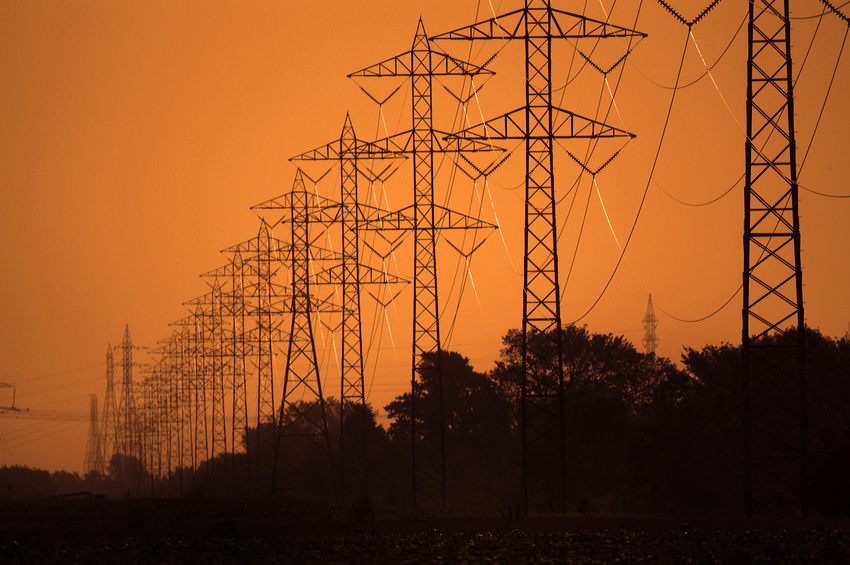


Examiner:
Assistant Professor Magnus Almgren, phone: 031-772 1702, email: magnus.almgren
Assistant Professor Vincenzo Gulisano, email: vincenzo.gulisano
Associate Professor Olaf Landsiedel, email: olafl
Associate Professor Marina Papatriantafilou, phone: 031-772 5413, email: ptrianta
This is a so-called masterclass in the area of advance, giving an overview of the smart grid and important technologies from the Information and Communication Technologies (ICT) area that is being used. The focus is on algorithms, distributed computing, communication and security.
In Europe and elsewhere, the electrical grid is being transitioned into the "smart grid" in order to increase flexibility and accommodate large scale energy production from renewable sources. This transition involves, among other steps, the installation of new, advanced equipment - for example, the replacement of traditional domestic electrical meters with smart meters - and remote communication with devices - for example, allowing remote access to an unsupervised energy production site.
The course is built around (i) seminars and (ii) project work. Through the seminars you learn about the design or development of systems, infrastructure, and applications that are related to the electric power smart grid, with a focus on distributed algorithms and security. You are expected to give some presentations, as well as to participate actively in discussions. Through the second part of the course, you are also expected to complete lab work, i.e. a significant project with relevance to the smart grid. In this way you will also gain experience at the front connecting research and education in the main domain overlapping two of the Areas of Advance, namely ICT and Energy. Through your presentations, you will also get feedback and learn to better present materials to your peers. Through your report, you will improve your skills in technical writing (connected to DAT147).
The course memo can be found here (version A-160831)..
Recommended text book
The course is built around seminars, lecture notes and research papers.
The course will be based on a series of scientific articles, both to give an introduction to our work and then support you in your respective projects. We have assembled a list of papers from which you can choose: http://www.cse.chalmers.se/edu/course/DAT300/papers.html. You may also suggest your own papers, but they need to be challenging and of sufficient theoretical depth.
For both presentations and project report, please take a careful look at the lectures/instructions at the technical writing course: http://www.cse.chalmers.se/edu/year/2015/course/DAT147/
For 2016, the following papers will be on the common reading list.
The following course material is electronically available. http://www.cse.chalmers.se/edu/course/DAT300/SLIDESNOTES/ Please note that the slides alone do not give a full coverage of the course contents. The schedule of the course is listed in timeedit. We will mainly meet Tuesday morning 08-10 (the EDIT room 3364 next to Linsen, and Thursdays 13-15 (EL 43), but please refer to timeedit for the full schedule and the Google Groups for any last minute announcements. For example, most instances, we will not use Tuesday 08-09 but keep that as a reserve to talk to your teams individually. Participation is mandatory. The student presentation schedule will later be posted here, but look at the papers page for resources for guidelines to prepare presentations and the link to the form for evaluating a presentation.
| Wednesday | 2016-08-31, 09-10 | Introduction to course, course administration |
| Thursday | 2016-09-01, 13-15 | Questions and answers: student meeting to discuss groups and topics (2h) |
| Tuesday; | 2016-09-06, 08-10, EDIT room 3364 | Course Deadlines, Paper and Project Examples Stefan Lundberg (Chalmers): Power Systems |
| Thursday | 2016-09-08, 08-10, EDIT room 3364 | Stefan Lundberg (Chalmers): Power Systems (continuation) (note the starttime will be decided after Tuesday lecture) |
| Tuesday | 2016-09-13;09-10 | Vincenzo Gulisano: Introduction to Streaming |
| Thursday | 2016-09-15; 13-15 | Mikel Iturbe Urretxa: Leveraging multivariate analysis to detect anomalies in ICSs Joris van Rooij (Göteborg Energi): Introduction to the advanced metering infrastructure |
| Tuesday | 2016-09-20, 08-10 | Possible Project Discussions (individual meetings by email invitations only) Göran Ericsson, Svenska Kraftnät: Information Security for the futuresmart grid |
| Thursday | 2016-09-22;13-15 | Valentin Tudor: Data privacy issues in the AMI Olaf Landsiedel: Low-Power Wireless Communication |
| Tuesday | 2016-09-27; 08-10 | Possible Project Discussions (individual meetings by email invitations only) Christian Marx, Tommie Månsson (Chalmers): Supermarket Refrigeration and HSB Living Lab Also look at the project web site for HSB Living labs. |
| Thursday | 2016-09-29;13-15 | Philippas Tsigas and Aras Atalar: Energy-efficient computing example student presentation |
| Thursday | 2016-10-06; 08-10, EDIT room 3364 | Group 8 student presentations (DL: G1) Viktor Botev: Detection of critical events and a case study in AMI |
| Thursday | 2016-10-06, 13-15 | Rikard Bodforss: Security and water systems Group 7 student presentations (DL: G8) |
| Tuesday | 2016-10-11; 08-10 | Possible Project Discussions (individual meetings by email invitations only) Group 5 student presentations (DL: G3) |
| Thursday | 2016-10-13; 13-15 | Group 4 student presentations (DL: G5) Group 2 student presentations (DL: G7) |
| Tuesday | 2016-10-18; 08-10 | Possible Project Discussions (individual meetings by email invitations only) Group 1 student presentations (DL: G2) |
| Thursday | 2016-10-20; 13-15, FL71 | Group 3 student presentations (DL: G4) reserved |